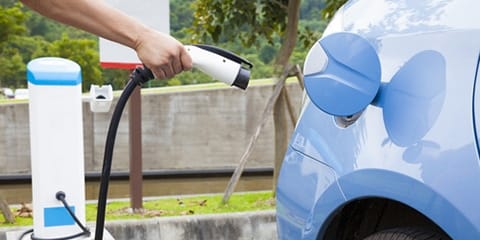When you insert your charging cable into your vehicle or charging station the normal procedure is for the cable plugs to lock into place so that they cannot be removed while charging. This is important to prevent theft of the cable as well as ensuring that the cable is not removed whilst the vehicle is still charging. Removing the cable when the car is still charging could result in damage to the cable and the vehicle. Fortunately, there are safeguards to ensure that the flow of electricity will stop once the plug is removed from the vehicle to prevent harm to the person pulling out the plug.
Problems with cables not unlocking are rare, but they could still happen to you. To help deal with any locking issues, we have put together a little list of the issues reported and possible troubleshooting steps.
The plugs not fitting
Sometimes when a plug doesn’t seem to fit into a vehicle or charging station socket it can be simply down to the plug not being fully inserted, or, if you have a new cable, the plug may be a little stiff at first and may require a little more force. When you insert the plug into the car and charging point you should hear an audible click or whirring sound that confirms that the plug has engaged with the locking mechanism of the vehicle socket. Also, if the EV is not fully unlocked you sometimes can’t insert the plug fully and hence no charge. All EV charging plugs are made to international standards and, within small tolerances, are therefore the same specification.
The plug is inserted but not locking
Vehicle sockets will be either Type 1 or Type 2 depending on the vehicle. The majority of EV’s in Europe have a Type 2 socket. All home wall boxes nowadays and public charging points also have a Type 2 socket. Hence you will see cables advertised as a Type 2 to Type 2 charging cable or Type 1 to Type 2 charging cable.
Each Type 2 charging plug has square locking holes around the edge of the plug. These holes can sometimes collect dirt and debris which stop the the locking mechanism from fitting inside and thus not enabling it to lock. Simply make sure these holes are clear if you are finding that the vehicle or charging point will not engage with the charging plug. The issue can also be caused by a damaged locking actuator, or it could simply be that the plug is not being inserted fully into the socket. The vehicle may also need to be locked.
Type 1 cables are slightly different when it comes to locking and unlocking from a vehicle. The Type 1 plug has a button which enables the plug to be removed from the vehicle. This type of plug can be taken out if the socket does not have a locking actuator. One solution to stop this is to use a shackle padlock. Our Type 1 plugs have a small hole in the button on top of the plug, through which a 25mm wide padlock can pass. If there are issues with locking a Type 1 plug, the cause will usually be caused by a failed actuator, or it could simply be that the plug is not being inserted fully into the socket. The vehicle may also need to be locked. Always check that when the button on top of the Type 1 plug is pressed, you hear a click and the latch on the Type 1 plug is engaged.
One other thing that could prevent locking is when you don’t insert both ends of the cable quickly enough. The vehicle needs to communicate with the charging station to ensure that it commences charging safely and with the correct amount of current. This is called the handshaking protocol. If the power source is not detected an error light will show, the vehicle may not lock onto the plug and the vehicle will not charge. The correct method to connect your charging plugs to a Type 2 charging point, is to connect to the the charging point first and the vehicle second.
The vehicle is not releasing the cable
There could be a problem with the vehicles locking actuator and this could be due to weather conditions. In sub zero weather the mechanism could freeze up and this can cause a problem with the actuator engaging or releasing the locking pins. Or the locking actuator mechanism may be subject to wear and tear in which case a visit to your dealer or mechanic may be required. The problem could simply be that you need to re-engage the locking mechanism by unlocking or locking and then unlocking your vehicle. Use your key fob to unlock the vehicle. If the vehicle is unlocked and the plug is still not releasing, try locking the vehicle and then unlocking it again.
If the above does not work and the vehicle socket is not releasing your cable, then most vehicles have a manual unlocking system. The manual release is usually in the boot of the vehicle behind where the vehicle socket is. Refer to your vehicle handbook in this case.
The charging point is not releasing the cable
Charging points may also want to cling onto your cable and in this instance you can try double clicking the unlock button on your vehicles key fob. If this fails ensure that both plugs are inserted, that you have ‘stopped’ the charging session by either using the vehicles console or the vehicles app, then lock the vehicle and unlock the vehicle. When unlocking the vehicle you may have to press the button on the key fob as much as 3 times (once to unlock the drivers door, twice to unlock the passenger doors/boot and thrice to unlock the cable). If the cable will still not release, please refer to your wall box manual or contact your dealer. Same principle for a public charging point, if the above steps do not work then you may need to contact technical support. Public charging points will usually have contact information if you get into difficulty.
With all this in mind, locking issues are rare and we hope that you won’t experience any cable locking problems with you EV. If you do, we hope that this article helps.
If you are looking for a new Type 1 or Type 2 cable, we have a range of Type 2 charging cables and Type 1 charging cables.
© 2023. Please do not reproduce without our permission



